The Scientific Seminar Series is designed to reach a priority microbiology community to support it in disseminating knowledge across its professional networks. The events are designed as a regularly repeated series of short (typically 1–2 hours) online meetings.
This monthly seminar series from Microbial Genomics will bring together the community of microbiologists using genomic approaches to discover more about viruses, bacteria, archaea and microbial eukaryotes. Centred around the journal’s key section areas, this series will highlight the latest research in Microbial Communities, Pathogens & Epidemiology, Genomic Methodologies, Functional Genomics, Microbe–Niche Interactions, and Evolution and Responses to Interventions, and provide a forum for networking and exchange of knowledge.
Organising Committee
- Professor Kat Holt (London School of Hygiene and Tropical Medicine, UK)
- Professor Sam Sheppard (The Milner Centre for Evolution, University of Bath, UK)
Sign up to attend this series of seminars via the 'Registration' tab. Instructions on how to join the Zoom session will be sent ahead of each seminar.
Please note all times listed on the programme are in GMT (UK time).
Organising Committee
- Professor Kat Holt (London School of Hygiene and Tropical Medicine, UK)
- Professor Sam Sheppard (The Milner Centre for Evolution, University of Bath, UK)
October Seminar Committee
- Dr Eva Heinz (Liverpool School of Tropical Medicine, UK)
- Dr Sebastian Bruchmann (University of Cambridge, UK)
November Seminar Committee
- Professor Swaine Chen (National University of Singapore and the Genome Institute of Singapore)
- Dr Bruno Francesco Rodrigues de Oliveira (Federal University of Rio de Janeiro, Brazil)
December Seminar Committee
- Dr Josie Bryant (University of Cambridge, UK)
- Dr Marta Zapotoczna (University of Warsaw, Poland)
- Dr Guerrino Macori (University College Dublin, Ireland)
January Seminar Committee
- Associate Professor Chris Greening (Monash University, Australia)
- Associate Professor John Moreau (University of Glasgow, UK)
- Dr Qin Qi (Macquarie University, Australia)
- Jesús Miguéns Blanco (Imperial College London, UK)
February Seminar Committee
- Associate Professor Jesse Shapiro (McGill University, Canada)
- Meaghan Castledine (University of Exeter, UK)
March Seminar Committee
- Dr John Lees (EMBL-EBI, UK)
- Dr Kate Hargreaves (Manchester Metropolitan University, UK)
Sign up to attend this series of seminars below. You will receive an email with information about each upcoming presentation, including joining instructions, a Zoom link, and any other relevant information, two days before each seminar. A second reminder email will be sent one hour before each seminar. Unfortunately, if you have signed up less than one hour before the seminar you will not be able to attend until the next seminar in the series.
* By completing and submitting this form, you understand, and hereby consent that the personal data provided by you in this form will be collected, processed and used by the Microbiology Society to send you any communication relating to the event. You understand and hereby consent that the personal data provided by you in this form will be collected, processed and used by the Microbiology Society for the following additional purposes, but only if you tick the relevant box above. The Microbiology Society is the data controller for the purpose of Data Protection Legislation. The Microbiology Society is a charity registered in England and Wales (Charity Number 264017), a charity registered in Scotland (Charity Number SC039250) and a company limited by guarantee, registered in England (Company Number 1039582).
Genomic Methodologies - 9 March 2022 seminar speakers
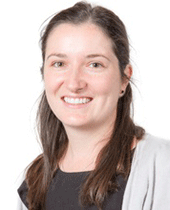
Grace Blackwell
Grace Blackwell completed her PhD at the University of Sydney, Australia with Professor Ruth Hall. She studied the evolution of antibiotic resistance regions in the important nosocomial pathogen Acinetobacter baumannii. Fine-scale analysis and comparisons of resistance regions allowed her to identify the likely origins of two of the genomic resistance islands from plasmids circulating in other Gram-negative bacteria. Dr Blackwell was then awarded an ESPOD fellowship to work with Professor Nick Thomson at the Wellcome Sanger Institute and Dr Zamin Iqbal at EMBL-EBI. Here, she has continued to work on understanding mobile genetic elements that contribute to the spread of antimicrobial resistance genes, but on a much larger scale. As a result, Dr Blackwell has produced a substantial resource of 661,405 bacterial assemblies that have been uniformly assembled and characterised and made public for community use. This resource uniquely supports search functionality, allowing researchers to quickly interrogate the data, test hypotheses and identify genomes of interest. Dr Blackwell has also collaborated on and supervised several projects, with her commitment to supervision being recognised by a LIDo Associate award. These projects include a community resource of 10,000 Escherichia coli genomes, the production of high-quality reference ETEC E. coli genomes along with a number of epidemiological studies.
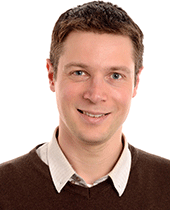
Xavier Didelot
Xavier Didelot is a Professor of Statistical Epidemiology and Genomics at the University of Warwick. He studied for his doctorate in the Department of Statistics at the University of Oxford, UK, and did postdoctoral work at the Universities of Warwick and Oxford. He also worked for many years in the Department of Infectious Disease Epidemiology at Imperial College before taking his current appointment. Xavier Didelot is the Director of the recently created Health Protection Research Unit in Genomics and Enabling Data which is funded by the National Institute for Health Research. This project is a collaboration between the University of Warwick, Public Health England, the Centre for Genomic Pathogen Surveillance and the University of Cambridge. Xavier Didelot's research is concerned with understanding the way bacterial pathogens evolve, spread and cause disease. He has analysed both epidemiological and genomic data from a wide range of bacteria, especially those causing healthcare-associated infections and gastrointestinal infections. A key aim is to develop new bioinformatics and statistical methods that can handle the very large amounts of data made available by novel high-throughput sequencing techniques.
Evolution and Responses to Interventions - 9 February 2022 seminar speakers

Carmen Gu Liu
Carmen is originally from Panama and attended Penn State University, USA for her undergrad studies where she majored in Microbiology with a minor in Biochemistry and Molecular Biology. Soon after graduation, she matriculated at Baylor College of Medicine (BCM) to pursue a PhD degree in Molecular Virology and Microbiology. She is currently a 4th year PhD candidate doing phage research in the Maresso Lab. Her first project involved developing Synogram, an assay that can be used to study the interaction between phage-antibiotic. This tool is currently being used at the TAILOR LABS at BCM with therapeutic phages. Her current project involves studying and discovering novel viruses from different environmental samples, constructing DNA libraries out of these viral samples, and performing functional assays to screen for novel genes that can help answer some basic biological questions. She is very interested in the phage field and will continue to research ways in which we can use phages as therapeutic tools. Throughout her years at Baylor, she has received many awards with her work, with the most recent ones being poster awards at the Phage Futures Congress and the World Microbe Forum.
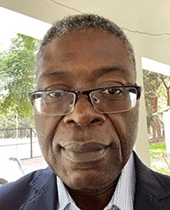
Martin Antonio
Martin Antonio is currently a Professor of Molecular Microbiology and Global Health as well as a Co-Director of LSHTM, Centre for Epidemic Preparedness and Response. He is affiliated with the Department of Infection Biology, Faculty of Infectious and Tropical Diseases, LSHTM. However, he is based overseas at the MRC Unit The Gambia at LSHTM, where he is MRC Investigator and Director of the WHO Regional Reference Laboratory for Invasive bacterial diseases. Martin is a member of the MRC Unit The Gambia at LSHTM Senior Strategic Leadership Board and Chairs the Unit’s West Africa Strategy and partnership. Additionally, he serves on numerous schools and International Scientific Advisory Boards as Chair or member in Africa, Europe, UK and USA.
Martin obtained his BSc in Biochemistry from University of Glasgow in 1991, MSc in Applied Molecular Biology of Infectious Diseases). He then moved across the road to Bart’s Medical College, University of London (now Queen Mary and Westfield College) where he obtained his PhD (Molecular Microbiology) in 1997 with Professor Mark Pallen (Supervisor) and Professor Brendan Wren (Advisor)
Martin Antonio is a Fellow of the African Academy of Sciences and Royal College of Pathologists (UK). He is also an Honorary Fellow of the Royal College of Physicians (London, UK), Honorary Professor at Warwick Medical School, University of Warwick, Coventry, UK and previously Honorary Professor at LSHTM until the MRC Unit The Gambia was transferred to LSHTM in February 2018.
Martin’s research is focused on the leverage of innovative molecular technologies in the diagnosis of tropical diseases (mainly tuberculosis, meningitis, pneumonia, diarrheal diseases), investigation of meningitis outbreaks and transmission, antimicrobial resistance and clinical trials. Furthermore, his research applies molecular tools to understand the impact of air pollution on the nasopharyngeal microbiome and epidemic meningitis in Africa. I have supervised eleven UK PhD students and examined several PhD thesis in UK and Africa Universities. He has published over 200 research papers with a research publication H-Index of 51.
Microbial Communities - 26 January 2022 seminar speakers
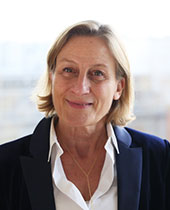
Nicole Dubilier
Nicole Dubilier is a Director at the Max Planck Institute for Marine Microbiology in Bremen, Germany where she heads the Symbiosis Department, and a professor for Microbial Symbiosis at the University of Bremen. Her research has fueled a major change in our understanding of the importance, diversity and function of symbioses between bacteria and animals. Together with her team, she has revealed the remarkable diversity of marine symbioses and shown that beneficial associations between bacteria and marine invertebrates have evolved independently and multiple times in convergent evolution. Her research has provided a critical contribution to marine microbiology and ecology by showing how widespread symbioses between marine invertebrates and bacteria are in terms of geography, animal and bacterial diversity, and habitats ranging from coastal sediments to the deep sea. She has led numerous research cruises and expeditions worldwide and uses a wide array of methods to study marine symbioses that range from deep-sea in situ tools to molecular, 'omic' and imaging analyses.
Nicole Dubilier grew up in the USA, gained her PhD from the University of Hamburg Germany in 1992, and after a postdoc at Harvard University, joined the Max Planck Institute for Marine Microbiology in Bremen, Germany. Her achievements have been recognized through numerous awards and honours, including the Leibniz Prize (Germany's most prestigious research prize), a Gordon and Betty Moore Marine Microbial Initiative Investigator Award, and a European Research Council Advanced Grant. She is an elected Fellow of the German National Academy of Sciences (Leopoldina), European Molecular Biology Organisation, European Academy of Microbiology, and American Academy of Microbiology, and is the current President of the International Society of Microbial Ecology. She serves on many national and international advisory boards, scientific councils and other commissions of trust, and is engaged in advancing gender equity in science.
Find more information on the Department of Symbiosis webpage.
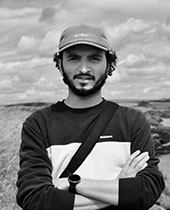
Ashish Malik
Ashish Malik is a Lecturer at the University of Aberdeen since November 2019. His research focuses on understanding soil microbial processes involved in carbon cycling and the underlying mechanisms from population and community to ecosystem scales. A key objective is to determine how environmental change affects microbial physiology, carbon cycling and thus ecosystem functioning. He is also keen on exploring newer ways of doing research, improving research culture and promoting diversity and inclusivity in academia and beyond.
After finishing his university education in Microbiology in India, he started his research career at the National Institute for Oceanography in Goa working on understanding plankton trophic linkages in coastal ecosystems. He then secured a German Research Foundation fellowship to do PhD research at the Max Planck Institute for Biogeochemistry in Jena, Germany. Early on, his research was focused on using advanced isotope tracer methods to track carbon inputs into different microbial components. Whilst developing and applying these approaches in microbial ecology, he explored new ways of linking these methods with omics assessment of biodiversity and function. This powerful combination enabled him to trace carbon flows through specific metabolic pathways in a more quantitative fashion.
After independently securing a Marie Curie Fellowship, he moved to UK Centre for Ecology & Hydrology in Wallingford. Here he discovered soil pH-dependent effects of land-use intensification on microbial physiology and carbon storage. To address the challenge of interpreting the consequences of microbial physiology on ecosystem-scale processes such as carbon storage, he developed trait-based approaches to study microbial distribution across environmental gradients. This pioneering work was further developed at the University of California Irvine where he did postdoctoral research to understand the physiological constraints facing microbes under drought and the consequences for plant litter decomposition in Californian ecosystems.
His group continues to investigate how environmental change affects microbiome-soil carbon linkages with an explicit focus on the underlying mechanisms. Using a multi-scale integrated ecology approach, he hopes to leverage fundamental science to address key societal challenges of sustainable land use, climate change resilience and peatland restoration.
Populations, Pathogens and Epidemiology - 1 December 2021 seminar speakers
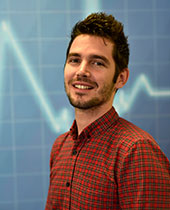
Francesc Coll
Francesc is a computational biologist with expertise in bacterial genomics, antibiotic resistance and clinical microbiology. He is currently an Assistant Professor in the Department of Infection Biology supported by an Institutional Strategic Support Fund Fellowship (ISSF), funded by Wellcome & LSHTM. His research projects focus on the applications of whole-genome sequencing as research, surveillance and diagnostic tool for bacterial infections. Francesc has worked in the development of bioinformatics analysis pipelines, easy-to-use genome interpretation tools, standards for genome analyses and interpretation, and the development of genetic markers needed to extract actionable information from bacterial genomic data. He has conducted large genomic epidemiology studies to map the spread of bacterial clones, particularly applied to the epidemiology of nosocomial pathogens (methicillin-resistant Staphylococcus aureus and vancomycin-resistant Enterococcus faecium). He has also worked in the application of Genome-Wide Association Studies (GWAS) to bacteria, which can be used to identify the genetic mechanisms mediating antibiotic susceptibility, host adaptation and disease presentation in pathogenic bacteria. Francesc joined the London School in July 2016 as a Postdoctoral Fellow in Professor Sharon Peacock's lab funded by Sir Henry Wellcome Postdoctoral Fellowship. In October 2014, he completed his PhD at the School under the supervision of Professor Taane Clark, which focused on strain genotyping and drug resistance in Mycobacterium tuberculosis using whole-genome sequencing. He obtained his degree in Biotechnology from the Polytechnic University of Valencia in 2010, Spain, followed by an MSc in Bioinformatics in Cranfield University, UK.
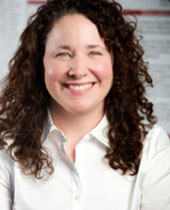
Caitlin Pepperell
Caitlin Pepperell is an evolutionary biologist and infectious diseases physician. She completed her medical training in Canada, at Queen’s University, after obtaining her B.A. in English Literature from McGill University. She worked in the documentary film industry in between undergraduate and medical school, earning credit on a film that went on to receive a Genie award. Dr Pepperell’s residency training was at the University of Toronto, in internal medicine. She went on to infectious diseases fellowship training at the University of Toronto and at Stanford University. While at the University of Toronto, she cared for patients affected by the SARS pandemic of 2002-4. Her clinical fellowship was followed by post-doctoral research training in evolutionary genetics with Marc Feldman at Stanford. Dr Pepperell was recruited to the University of Wisconsin Madison in 2010, where she has a joint faculty position in the Department of Medicine, the division of infectious diseases, and the Department of Medical Microbiology and Immunology. She was promoted to associate professor in 2017. Dr Pepperell’s research focuses on the population biology of infectious diseases. It encompasses evolutionary genomics of bacterial pathogens, disease ecology, and the genetic basis of human susceptibility to infectious diseases. She maintains an active clinical practice in infectious diseases in addition to managing her NIH funded research program and has held leadership positions in medical education.
Microbe–Niche Interactions - 10 November 2021 seminar speakers
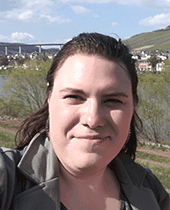
Carina Bunse
Carina Bunse is an early career marine microbial ecologist, with expertise in traditional microbiology, marine ecology and microbial oceanography. After receiving her PhD at Linnaeus University in Sweden, and holding a postdoctoral position at the Helmholtz Institute for Functional Marine Biodiversity at the University of Oldenburg (HIFMB), she is currently affiliated with the Institute for Chemistry and Biology of the Marine Environment (ICBM) in Germany. Carina's research focuses on pelagic bacteria, but she has broadened her knowledge in marine ecology with an interest in global challenges for the world’s ocean and local initiatives in coastal areas of the Baltic Sea and the North Sea. Her overarching research interest pertains to disentangle functional microbial dynamics in the changing ocean. Specifically, she studies how marine bacteria are influenced by environmental drivers, how their abundance changes spatio-temporally and how this relates to biogeochemical nutrient cycles. As multidisciplinary science matters for a holistic understanding of the marine ecosystem, Carina collaborates with chemists, modellers and ecologists to bridge disciplines. Many of her studies encompass large datasets of 'omics data or time-series efforts, analyzed with traditional and state-of-the-art methods.

Swaine Chen
Swaine Chen is an Associate Professor of Medicine at the National University of Singapore and a Group Leader at the Genome Institute of Singapore. His research interests include the application of genomics to understanding molecular mechanisms of urinary tract infection, particularly those caused by Escherichia coli. He specializes in the bacterial genetics and manipulation of wild type clinical isolates, which helps in understanding pathogenesis and antibiotic resistance as well as in creating new tools for synthetic biology. In addition, he has expertise in the application of genomics for the investigation of outbreaks of bacterial disease, which helped lead to the discovery of a previously unknown foodborne illness caused by Group B Streptococcus in Singapore and Southeast Asia. He also is an advocate for general science education and science communication through traditional and social media platforms.
Functional Genomics – 20 October 2021 seminar speakers
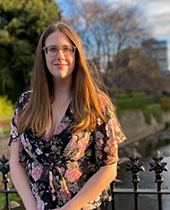
Leah Smith
Dr Leah Smith earned her undergraduate degree in Biology at Rhode Island College (USA). There she completed an honours thesis project, supervised by Dr Breea Govenar, utilizing next-generation sequencing to investigate the microbial diets of gastropods associated with deep-sea hydrothermal vents. She was a recipient of the Robert Young Scholarship Award for Research Excellence in the biological sciences. Leah then earned an MS in Biology at the University of Massachusetts Dartmouth (USA) in the lab of Associate Professor Mark Silby investigating interactions between soil bacteria. Her research focused on Type VI secretion systems and post-transcriptional regulation via the chaperone protein Hfq. During her studies, she was awarded the Chancellor’s Centennial Scholarship for academic excellence. Leah went on to earn a PhD in Microbiology from the University of Otago (New Zealand) in 2020. Her research was undertaken in the Department of Microbiology and Immunology, under the supervision of Professor Peter Fineran. Leah’s work focused on the regulation of bacterial defence systems – specifically CRISPR-Cas adaptive immunity. As part of her doctoral work, she developed a new method – termed SorTn-seq – to facilitate high-throughput studies of bacterial gene regulation. Her PhD thesis – A genome-wide approach identifying regulators of CRISPR-Cas immunity in Serratia – was placed on the Otago Division of Health Sciences list of Exceptional Doctoral theses. Leah currently works as a Postdoctoral Fellow in the Fineran lab at the University of Otago. Her work on CRISPR-Cas continues, with a shift in focus from gene regulation to mechanisms of type III CRISPR-Cas immunity and the dynamics of host-phage interactions.
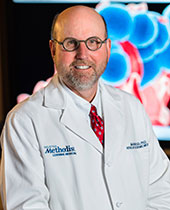
James M Musser
James M. Musser, M.D., PhD holds the Fondren Distinguished Presidential Endowed Chair and is Chair of the Department of Pathology and Genomic Medicine for the Houston Methodist Hospital System. He also directs the Center for Infectious Diseases and the Laboratory of Clinical and Translational Human Infectious Diseases Research at the Houston Methodist Research Institute. He is a Professor of Pathology and Laboratory Medicine, Weill Cornell Medical College.
Dr Musser earned his M.D. and PhD degrees from the University of Rochester School of Medicine. He trained at the Hospital of the University of Pennsylvania and joined the Department of Pathology of Houston Methodist Hospital in 1991. In 1999, he accepted a position with Dr Anthony Fauci at the National Institute of Allergy and Infectious Diseases, National Institutes of Health, where he was Founding Chief of the Laboratory of Human Bacterial Pathogenesis. In 2005, he and his laboratory moved to Houston Methodist Hospital and Research Institute. He works primarily on group A Streptococcus (the “flesh-eating” pathogen), with a special emphasis on human-pathogen molecular interactions using genome-wide investigative strategies. His group also uses genome-scale analyses to decipher the molecular events underpinning pandemics and pathogen-host interactions. He has had a decades-long interest in developing a group A Streptococcus vaccine. Clinically, his efforts focus on diagnostic microbiology, patient safety, error reduction, and antimicrobial agent resistance.
Dr Musser is an elected member of many professional societies, including the American Academy of Microbiology, Association of University Pathologists (Pluto Society), American Society for Clinical Investigation, Association of American Physicians, and the American Clinical and Climatological Association. He has been fortunate to receive many national honours and awards, including the ICAAC Young Investigator Award (1992), and the Warner-Lambert/Parke-Davis Award (1999) and Chugai Award for Excellence in Mentoring and Scholarship (2007), both sponsored by the American Society for Investigative Pathology. He received the prestigious Rous-Whipple Award in 2017, sponsored by the American Society for Investigative Pathology. He is past president of the American Society for Investigative Pathology, served on the Board of Directors, Federation of American Societies for Experimental Biology (FASEB), and was President of FASEB (2018-2019).
He has published more than 450 papers and book chapters in the field of bacterial pathogenesis, bacterial population genetics, and infectious diseases, and has an h-index of 106.
Evolution and Responses to Interventions - 9 February 2022
|
15:00—15:20 |
Phage-Antibiotic Synergy Is Driven by a Unique Combination of Antibacterial Mechanism of Action and Stoichiometry |
|
15:20—15:40 |
Molecular Microbiology ‘out of Africa’ |
|
15:40—16:00 |
Q&A |
|
16:00—16:30 |
Networking |
Microbial Communities - 26 January 2022
|
10:00—10:20 |
Microbial processes impacting soil carbon cycling under drought: trait-based scaling from individuals to the ecosystem |
|
10:20—10:40 |
Eating your microbiome: Nutritional symbioses between deep-sea mussels and chemosynthetic bacteria |
|
10:40—11:00 |
Q&A |
|
11:00—11:30 |
Networking |
Populations, Pathogens and Epidemiology - 1 December 2021
|
15:00—15:20 |
Towards standardisation of genomic epidemiology investigations |
|
15:20—15:40 |
Pathogen emergence among Mycobacteria |
|
15:40—16:00 |
Q&A |
|
16:00—16:30 |
Networking |
Microbe–Niche Interactions - 10 November 2021
|
13:00—13:20 |
Microbe-niche interactions in the marine environment Carina Bunse (University of Oldenburg, Germany) |
|
13:20—13:40 |
Genomic insights into a totally new GBS disease in SEAsia |
|
13:40—14:00 |
Q&A |
|
14:00—14:30 |
Networking |
Functional Genomics – 20 October 2021
|
19:00—19:20 |
Using functional genomics to identify regulators of CRISPR-Cas defense |
|
19:20—19:40 |
Integrated genome-scale analysis of Streptococcus pyogenes pathogenesis yields novel insights about molecular pathogenesis |
|
19:40—20:00 |
Q&A |
|
20:00—20:30 |
Networking |
